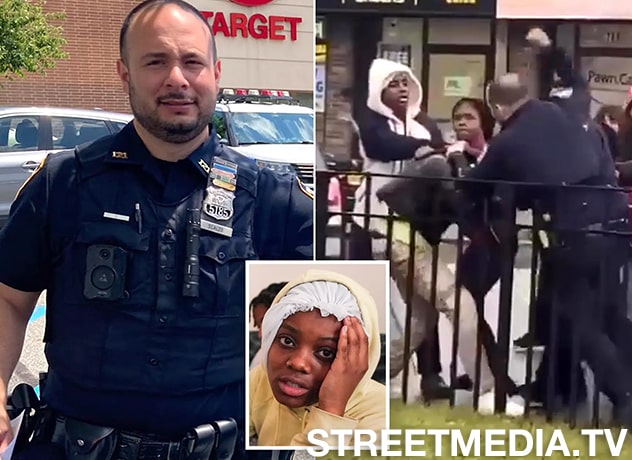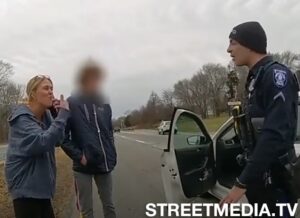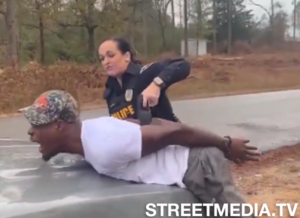Cop Fights 14-Year Old Girl After He Was Supposed To Be Breaking It Up

In the age of social media, viral videos often serve as a catalyst for public discourse and heated debates. One such incident took place recently when a video capturing an altercation involving an NYPD officer and a 14-year-old girl went viral. The shocking footage showed the officer punching the girl in the head during an after-school fight on Staten Island. This incident sparked widespread outrage, leading to the immediate suspension of the officer without pay. In this blog post, we will delve into the details of the video, where allegedly the cop beats up a 14-year-old girl. Also exploring the implications of police behavior, and analyze the subsequent reactions from the public and law enforcement agencies.
The video, recorded by a bystander, begins with a chaotic scene as a group of teenagers engages in a physical altercation. Amidst the commotion, the NYPD officer can be seen attempting to intervene. However, in a moment that shocked viewers, he delivers a punch to the head of a 14-year-old girl involved in the fight. The video’s viral nature quickly amplified the incident, leading to a widespread outcry.
The incident raised serious questions about the appropriate use of force by law enforcement officers, especially in situations involving minors. Critics argue that the officer’s actions were excessive and disproportionate, given the young age and apparent lack of immediate threat posed by the girl. They claim that alternative de-escalation techniques should have been employed, emphasizing the need for proper training and protocols in handling such situations.
Proponents of the officer’s actions, however, argue that the viral video only captured a small portion of the entire event, and that the officer was forced to act to restore order and protect those involved. They highlight the chaotic nature of the scene, suggesting that the officer’s actions were a split-second decision made under high-pressure circumstances. It is essential to await a thorough investigation to understand the full context surrounding the incident.
>> Cop Beats Up 14-Year Old Girl After He Was Supposed To Be Breaking It Up!
The video’s widespread circulation sparked public outrage, leading to a wave of calls for the officer’s immediate dismissal and criminal charges. The incident further ignited existing tensions between communities and law enforcement, highlighting the need for improved police accountability and transparency.
Acknowledging the public outcry, the NYPD swiftly suspended the officer without pay, initiating an internal investigation. This response aimed to demonstrate a commitment to addressing the incident promptly and thoroughly. Simultaneously, it sought to reassure the public of the department’s dedication to maintaining public trust and accountability.
The incident also prompted renewed discussions about police reform, training, and community engagement. Critics argue that systemic changes are required to foster better relationships between law enforcement agencies and the communities they serve. Calls for improved officer training, especially in de-escalation techniques and conflict resolution, have gained significant momentum.
The viral video capturing the altercation between an NYPD officer and a 14-year-old girl on Staten Island has shed light on the complex issues surrounding police behavior and the need for police reform. While the video provides a disturbing glimpse into the incident, it is crucial to await a comprehensive investigation to determine the full context and potential mitigating factors involved.
The incident serves as a reminder of the broader challenges faced by law enforcement agencies in maintaining public trust and ensuring proper conduct. It also underlines the importance of open dialogue, constructive reforms, and improved training to address the systemic issues that contribute to such incidents. By learning from these events, society can work towards a future where law enforcement and the communities they serve can coexist with respect, empathy, and accountability.



